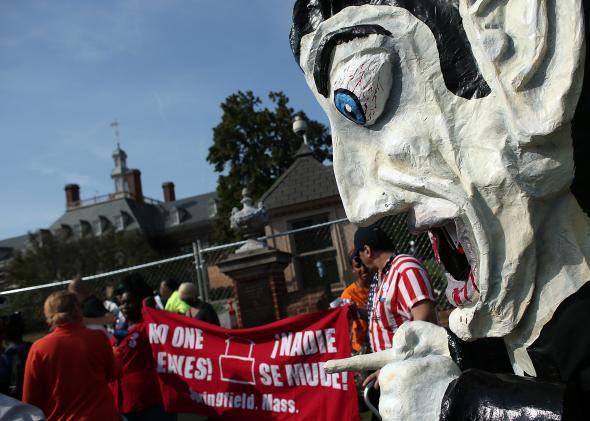At the depths of the economic downturn, the federal government nationalized Fannie Mae and Freddie Mac and continued to make good on their debt obligations via a tremendously expensive and broadly unpopular bailout. But as things calmed down and the housing market started to recover, Fannie and Freddie turned profitable and have been kicking those profits back to the Treasury as dividends. In its latest report, Fannie Mae says it earned $84 billion in 2013, and as Nick Timiraos points out, this means the Treasury will soon be in the black on the bailout:
Something to note here is that the precise semantics of this situation matter. Post-bankruptcy Fannie Mae continues to be a publicly traded company, and various vulture funds own those shares. The shareholders’ preferred characterization of the situation is that the bailout Fannie received was a kind of loan and that these dividends constitute “paying back” the loan. When the “loan” is fully “paid off” the shareholders feel that they should have first claim on Fannie’s ongoing value as an enterprise.
The Treasury Department—rightly—entirely rejects this analysis. As a matter of law, Fannie was taken “into conservatorship” because it was bankrupt. At that point, shares in Fannie Mae ceased to have any value. Since entering conservatorship, Fannie has both received bailout funds and paid dividends to the Treasury. But nothing has been repaid because there is no loan, and buying up the post-conservatorship shares of Fannie doesn’t entitle you to anything.
That said, while it’s fun to debate the metaphysics of the situation, what actually matters is Congress. Congress is going to do something about Fannie and Freddie eventually, and it is entirely within the power of Congress to “do something” that gives Fannie and Freddie shareholders an undeserved windfall. So watch out.
